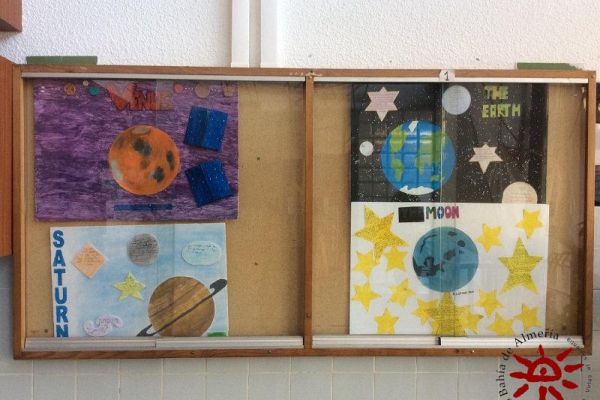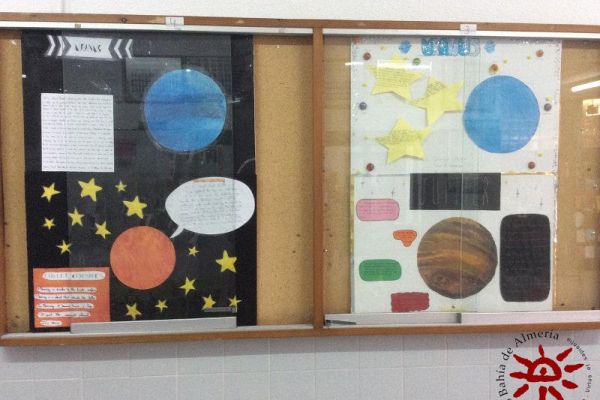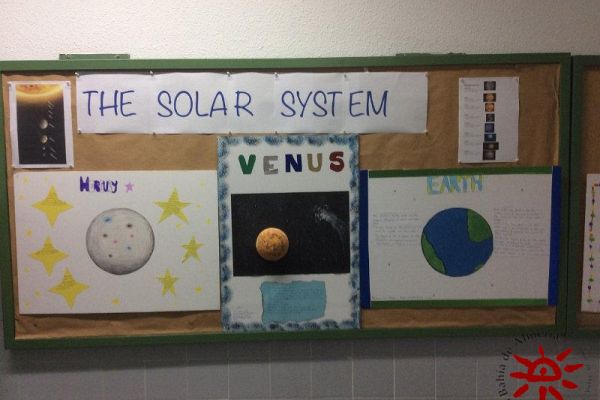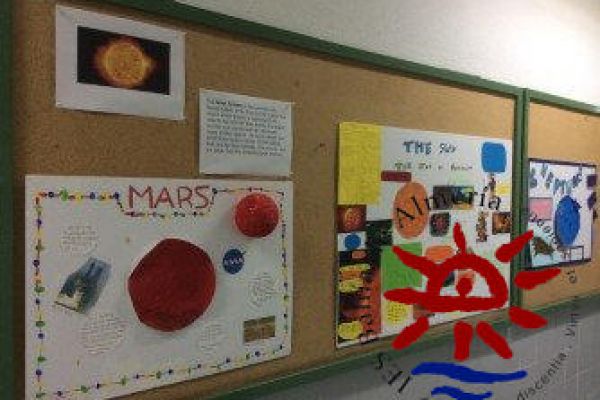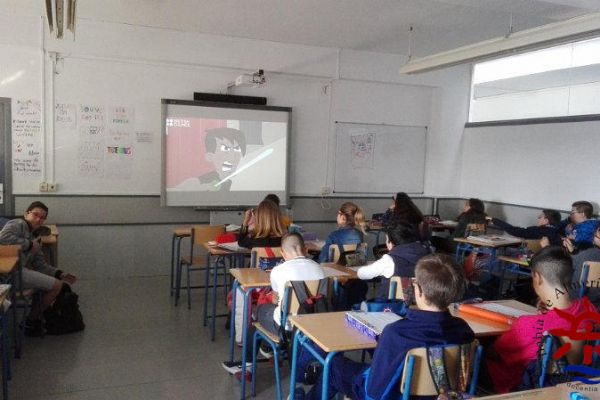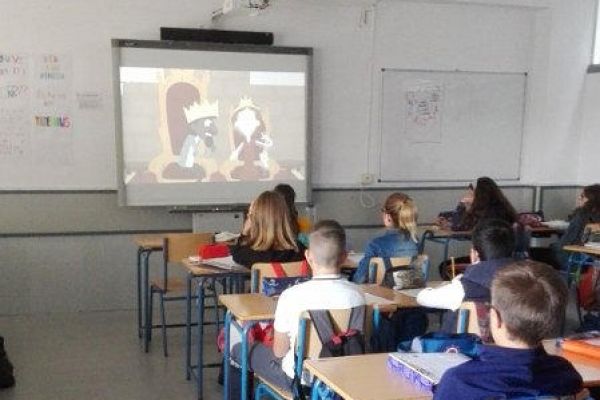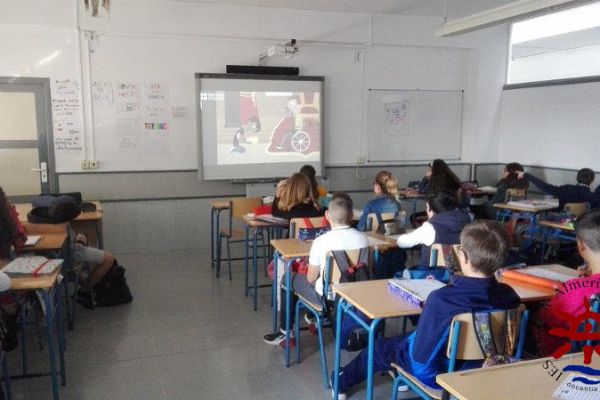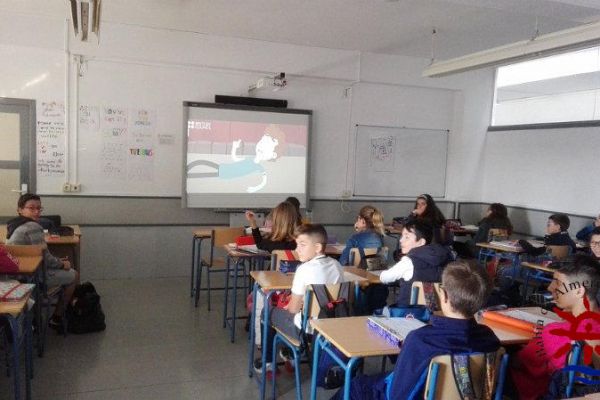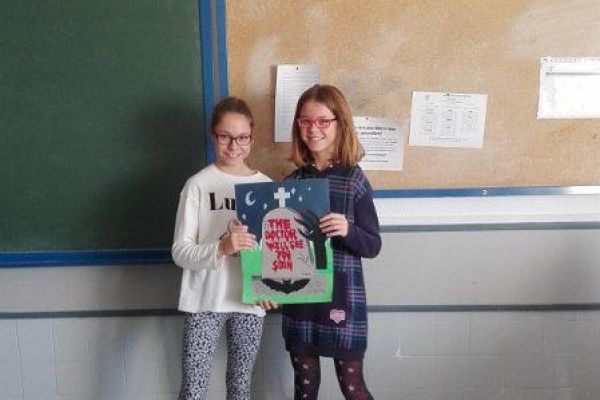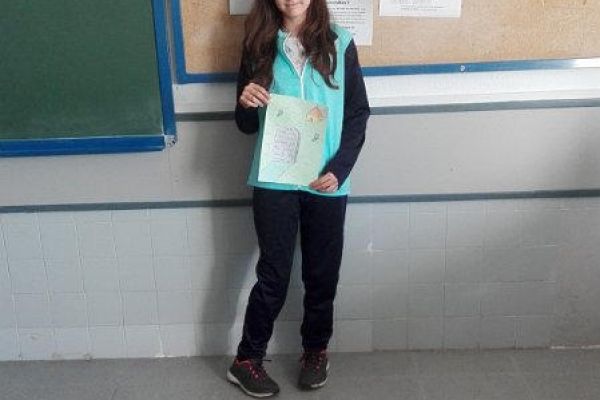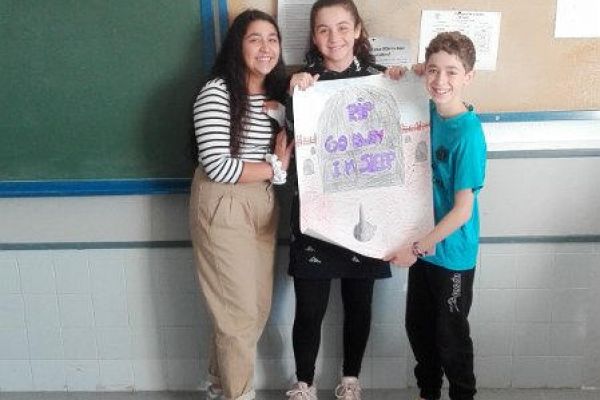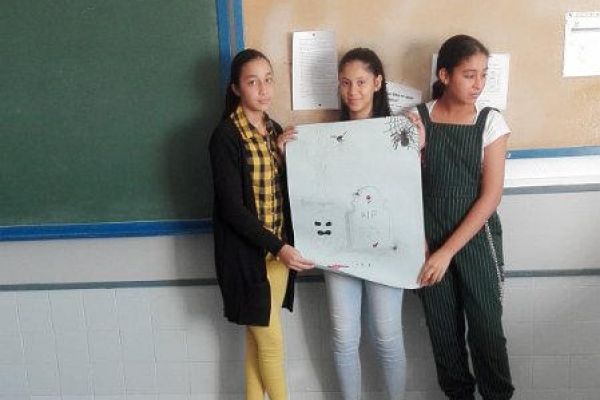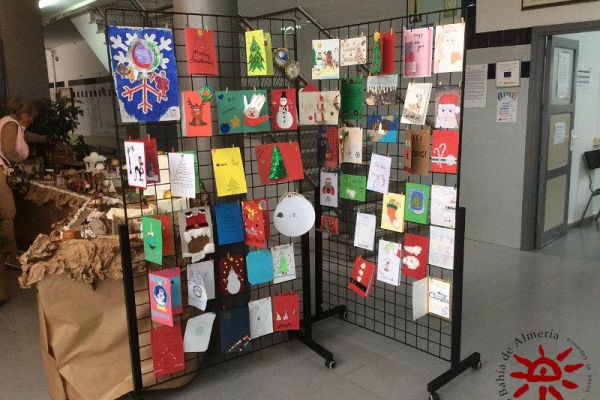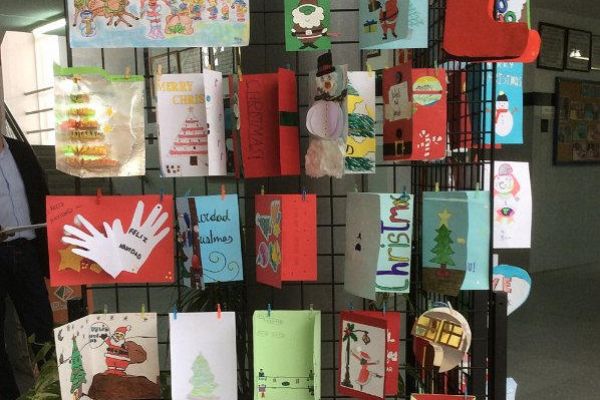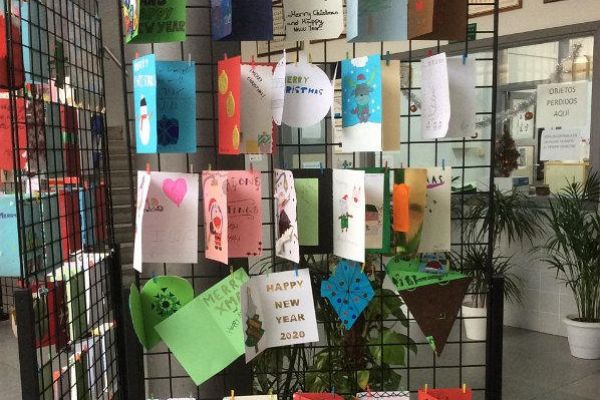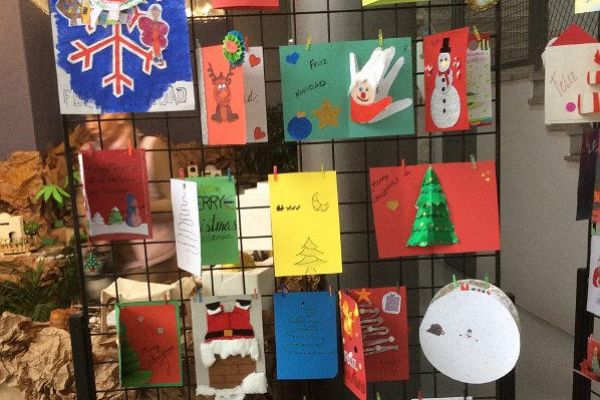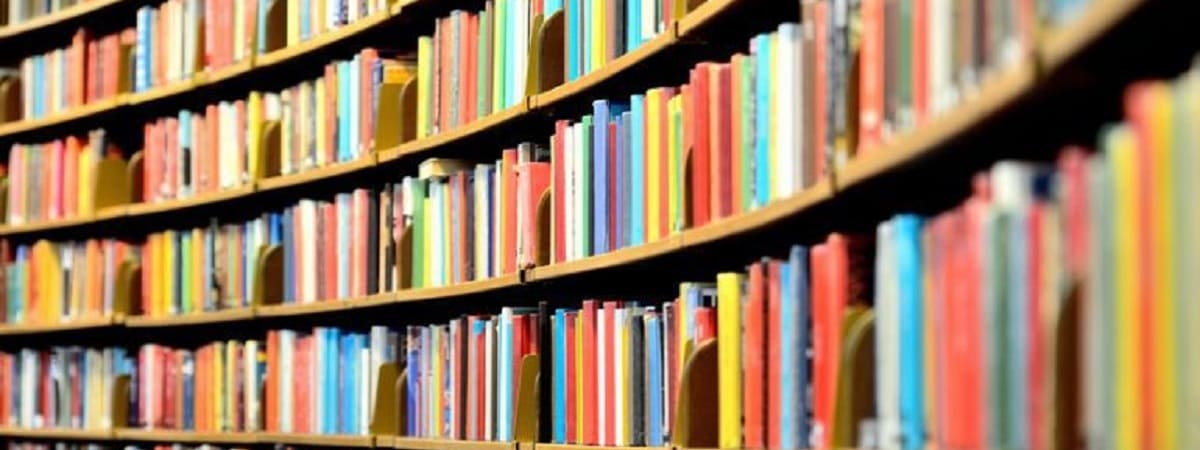
IES Bahía de Almería, aware of the importance of the diversity of languages and of the transformation towards a multicultural and multilingual society, intends to make our youth, our students take part actively in a increasingly open and globalized context, and that’s the reason why we should be aware that an increase of communication skills will enable access to information, contribution to an economic development and to a geographical mobility.
Our school began this Multilingualism Development Plan in the academic year 2016/17 in all 1st ESO units, which was gradually implemented throughout the remaining courses. A bilingual centre is characterized in our Autonomous Community by the teaching and learning of specific areas or subjects in two languages and an increase in student exposure hours to foreign languages, which becomes the instrumental learning, vehicular language that runs aside to the mother tongue, which remains the host language; therefore, certain subjects are studied in two languages, English and Spanish, i.e. not letting substitute language replace the other.
Without forgetting that one of our goals is to improve the language skills of our students in their mother tongue, we propose to carryout a multilingual teaching model, in which students could express themselves in different languages (Spanish, English and French), know other cultures, accept differences, establish constructive relationships with others and solve discussions non-violently. It is precisely in this context where all educational projects we undertake in our school make sense, among which the Bilingualism Project is (English).
Multilingualism as educational issue is defined as the intrinsic capacity of all speakers to use and learn, on your own or through teaching, more than one language. Multilingualism as a value is based on linguistic tolerance. Its perspective is focused on the speaker and not on languages.
Thus, the general goals to be achieved for students immersed in this program are:
General objectives
- Empowering students, promoting learning to learn languages on their own, developing a reflective attitude to their way of learning, knowledge acquisition to their needs: all language teaching should channel this awareness of learning strategies.
- Considering language teaching as a continuous process, not limited to a certain stage. This is supposed to take into account, above and parallel, and stop considering languages as unrelated previous knowledge compartments, individual and school.
- Promoting competition knowing being, as the ability to defer our judgment and neutralize our representations about others, but also unfocusing ourselves from the culture we belong to so as to be able to perceive an external point of comparable view to the look a foreigner would have on our culture.
- Encouraging teachers to rethink the social representations of language teaching: the acquisition of languages is not school knowledge, it is a human competition.
- Raising awareness among speakers of the nature of their own linguistic repertoire, including their mother tongue.
- Showing the inherent dignity of these linguistic varieties.
- Making them discover the evolving nature of the acquisition of languages.
- Developing these repertoires by increasing competences, skills levels, the number of language varieties, etc.
- Developing generic skills that help multilingualism.
- Managing multilingualism
Linguistic objectives
- Improving language skills of both first and second language.
- Increasing lexis.
- Increasing metalinguistic abilities.
- Increasing understanding and language production.
- Increasing critical thinking and creativity.
Cultural objectives
-
Awakening respect for other cultures.
-
Stimulating interest in learning about other believes, customs, institutions and techniques.
-
Promoting tolerance, freedom, solidarity and respect for pluralism
-
Encouraging the development of a society free of prejudice and stereotypes..
Cognitive objectives
-
Encouraging and facilitating analysis ???and monitoring operations used in the learning processes.
-
Encouraging reflection on the linguistic and communicative operation ???of first and second languages.
-
Developing conceptual ability.
-
Contributing to the formation of conscience and developing their autonomy.
After finishing their studies, all Secondary Education students receive a certificate approved by the Ministry of Education stating that bilingual studies were fulfilled
-
Non-linguistic areas are: Physical Education (3rd and 4th ESO), Geography (3rd and 4th ESO), Technology (2nd and 3rd ESO), Physics and Chemistry (2nd ESO) Plastic and Visual Education-Arts (1st ESO), Biology and Geology (1st ESO), Mathematics (1st and 2nd ESO)
-
The coordinator of the Bilingual Program:
Mr. Miguel Machado Ruiz
-
Teachers:
Mr. Miquel Falco Vallejo
Mr. Javier Gallego Fernández
Ms. Celia Lorente Galdeano
Ms Dolores Marti Montoya
Mr. Agustín Martínez Gómez
Ms. María Jesús Pérez Acosta
Ms. Nelidad Quiroga García, Nélida
Mr. Pablo Villanueva Serrano
-
The language assistant:
09-18 Introducing You
09-25 English in the Classroom
10-16 Planets
During this term students were asked to produce a poster on planets around the Sun. Thanks to invaluable support of the Geography and History 1º ESO teacher, Mrs Plácida López Orduño, the Departments of Arts (with Mrs Celia Lorente Galdeano), Biology and Geology (with Mr. Javier Gallego Fernández), Mathematics (with Ms Nélida Quiroga García), and English, challenged students to form groups in which they could show how the planet is, its characteristics (dimension, diameter, picture scale, kilometres from the Earth, …) and try to persuade future residents of living in that planet.
They were given information of the Universe and its formation in History; characteristics (position in relation to the Earth, size, surface, atmosphere, temperatures, satellites, …) in Biology; how to calculate its rotation, diameter, distance from other planets in Mathematics; full colouring with all kinds of nuances, tones, hues and shades plus the scale in which they were painted in Arts; and the translation of this information and persuasive tone to invite the public to visit their chosen planet, with the best pronunciation and intonation in English.
10-23 Hamlet
10-30 Halloween
10-30 Tombstones Funny Epitaphs
11-06 Guy Fawkes
11-11 Remembrance Day
11-20 Children's Rights Day
- Children_rights_Images_A
- Children_rights_Images_B
- child_rights_worksheet_A_info_gap
- child_rights_worksheet_B_info_gap
- worksheet_C_booklet_child_rights
11-27 Thanksgiving Day
12-04 Christmas
12-10 Christmas Card Contest
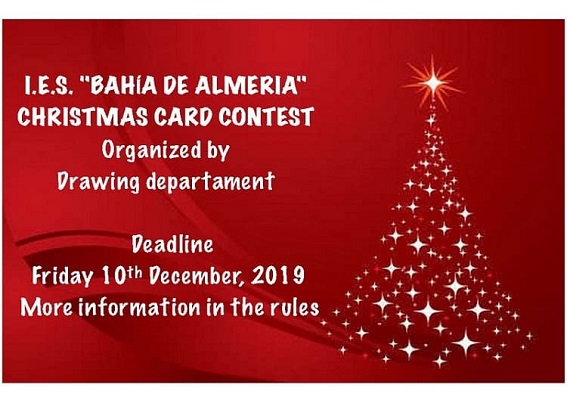
The last challenge was a ‘Christmas Card Contest’ in which all IES "Bahía de Almería" students were invited to take part. The theme of the cards was Christmas and its celebration and the originality and quality of them were especially valued as well as the effort in its elaboration.
The format of the postcards was set in DIN A5, sheet size (210mm x 148mm) horizontal or vertical, and any technique and material may be used: collage, tempera, crayons, coloured pencils... All handicrafts must bear on the back the name, the surname, the course and the group so that the winner was chosen for their skills and the deadline for submission of Christmas cards was set on Friday 10th December, 2019. Two categories were taken for the participation:
- 1st category: 1st ESO and 2nd ESO students.
- 2nd category: 3rd ESO and 4th ESO and the rest of the levels.
The cards were delivered to the Arts teachers and a final exhibition is being held with the participating cards in the Hall of the Centre. The prizes will consist of lots of school supplies and a diploma.
The amount and the quality of the exhibited cards was really satisfying, some of them showing authentic craftsmanship and originality, both in the conception and in the materials used, such as lights.
12-18 Mickey's Christmas Carol 25.39
Image gallery
-
Non-linguistic areas are: Physical Education (2nd and 4th ESO), Geography (1st, 2nd, 3rd and 4th ESO), Technology (2nd and 3rd ESO), Physics and Chemistry (2nd ESO), Plastic and Visual Education-Arts (1st ESO), Biology and Geology (1st ESO), Mathematics (2nd ESO)
-
The coordinator of the Bilingual Program:
Mr. Miguel Machado Ruiz
-
Teachers:
Ms. Celia Lorente Galdeano
Ms. Carmen del Mar Lorente Galdeano
Ms. María del Mar Fuentes Ortega
Mr. Agustín Martínez Gómez
Ms. María Jesús Pérez Acosta
Mr. Pablo Villanueva Serrano
Ms. Dolores Marti Montoya
Ms. Sandra Gonzalo López
Mr. Daniel Hernández San José
Ms. Ana Rocio Ramírez Sánchez
Ms. Josefa García García
Mr. Alejandro Joaquín Amat Martínez
-
The language assistant:
Ms. Riddhi Aggarwai
-
Non-linguistic areas are: Physical Education (2nd, 3rd and 4th ESO), Geography (1st, 2nd, 3rd and 4th ESO), Technology (2nd and 3rd ESO), Physics and Chemistry (2nd ESO), Plastic and Visual Education-Arts (1st ESO), Biology and Geology (1st ESO), Mathematics (2nd ESO)
-
The coordinator of the Bilingual Program:
Mr. Miguel Machado Ruiz
-
Teachers:
Mr. Alberto Aranda Shaw
Ms. María del Mar Fuentes Ortega
Mr. Rubén Gutiérrez Mate
Ms. Celia Lorente Galdeano
Ms. Carmen del Mar Lorente Galdeano
Mr. Agustín Martínez Gómez
Ms. María Jesús Pérez Acosta
Ms. Lourdes Sempere Montero
Mr. Pablo Villanueva Serrano
Ms. Sandra Gonzalo López
Mr. Daniel Hernández San José
Ms. María Sabrina Prieto Fernández
Mr. Pedro Suárez Baena
Ms. Amalia López Acosta
-
The language assistant:
Ms. Victoria Oestmann
-
Non-linguistic areas are: Physical Education (1st, 2nd, 3rd and 4th ESO), Geography (1st, 2nd, 3rd and 4th ESO), Technology (2nd and 3rd ESO), Physics and Chemistry (2nd ESO), Plastic and Visual Education-Arts (1st ESO), Biology and Geology (1st ESO), Mathematics (2nd ESO)
-
The coordinator of the Bilingual Program:
Ms. María José Martinez Vique
-
Teachers:
Ms. Carmen del Mar Lorente Galdeano
Ms. Celia Lorente Galdeano
Mr. Pablo Villanueva Serrano
Ms. Patricia Ibáñez Cruz
Mr. Pedro Suárez Baena
Mr. Agustín Martínez Gómez
Mr. Alberto Aranda Shaw
Ms. Moira Tornes Fernández
Mr. Jesús Cecilio Ramos Gil
Ms. Mª Sabrina Prieto Fernández
Mr. José Iván Colorado García
Ms. María Jesús Pérez Acosta
Ms. Lourdes Sempere Montero
Mr. Antonio Cara Navarro
The language assistant:
Ms. Mallie Eve Selinske
Elaborate material
United States of America
Halloween
Thanksgiving
